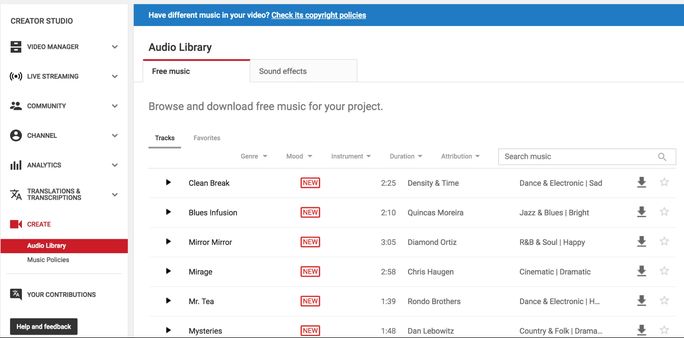Do Audiobooks Help With Fluency?
If you’ve ever wondered, “Do audiobooks help with fluency?” then you’re in the right place! Audiobooks have become increasingly popular in today’s fast-paced world, offering a convenient way to enjoy literature on the go. But can they actually improve your fluency? Let’s dive into this fascinating topic and explore the benefits of incorporating audiobooks into your language learning journey.
When it comes to language fluency, practice makes perfect. And what better way to practice than by immersing yourself in the sounds and rhythms of a language through audiobooks? By listening to native speakers narrate stories, you can develop a better understanding of pronunciation, intonation, and word stress. These elements are crucial for sounding natural and confident when speaking a language. Plus, audiobooks provide an opportunity to encounter a wide range of vocabulary and sentence structures, expanding your linguistic repertoire. So, if you’re looking to enhance your fluency, audiobooks might just be the secret weapon you’ve been searching for. Get ready to embark on a captivating auditory adventure that will sharpen your language skills and bring your fluency to new heights!

Do Audiobooks Help with Fluency?
Audiobooks have gained immense popularity in recent years, offering a convenient and engaging way to consume literature. But do they really help with improving fluency? In this article, we will explore the impact of audiobooks on language fluency and discuss the benefits they can bring to language learners.
The Role of Audiobooks in Language Learning
Audiobooks provide an alternative to traditional reading methods by allowing individuals to listen to narrated versions of books. This auditory experience can be particularly beneficial for language learners as it exposes them to the natural rhythms and intonations of the language. By listening to native speakers, learners can develop a better understanding of pronunciation, sentence structure, and overall language flow.
Additionally, audiobooks offer the advantage of multitasking. Unlike reading a physical book, audiobooks can be enjoyed while engaging in other activities such as driving, exercising, or doing household chores. This flexibility allows learners to maximize their time and immerse themselves in the language even during their daily routines.
Benefits of Audiobooks for Language Fluency
1. Improved Listening Skills: Listening comprehension is a crucial aspect of language fluency. Audiobooks provide learners with ample opportunities to practice their listening skills by exposing them to authentic conversations and narratives. This exposure helps in developing the ability to understand spoken language in real-life situations, ultimately leading to improved fluency.
2. Enhanced Vocabulary: Audiobooks expose learners to a wide range of vocabulary, including idiomatic expressions and colloquialisms. By listening to narrators who use varied language styles and tones, learners can expand their vocabulary repertoire and develop a more nuanced understanding of the language.
3. Reinforcement of Grammar and Syntax: Through the immersive experience of audiobooks, learners can reinforce their understanding of grammar and syntax. By hearing correct sentence structures, learners develop a better grasp of the language’s rules and patterns, which contributes to improved fluency in both speaking and writing.
4. Cultural Familiarity: Audiobooks often narrate stories that incorporate cultural references and traditions. By listening to these narratives, language learners gain insights into the cultural context of the language they are learning. This cultural familiarity enhances their overall language proficiency and facilitates more effective communication with native speakers.
Tips for Maximizing Audiobook Benefits
To make the most of audiobooks for language fluency, consider the following tips:
1. Choose Appropriate Material: Select audiobooks that match your language proficiency level. Starting with simpler texts and gradually progressing to more complex ones will help you build confidence and gradually improve your fluency.
2. Follow Along with the Text: To enhance your reading and listening comprehension, consider following along with the physical or digital text while listening to the audiobook. This practice allows you to connect the spoken words with their written counterparts, reinforcing vocabulary and sentence structure.
3. Repeat and Practice: Just like any other language learning method, repetition and practice are key to improving fluency. Revisit chapters or passages that you find challenging, and listen to them multiple times to reinforce your understanding and pronunciation.
4. Take Notes: While listening to an audiobook, jot down new vocabulary words or expressions that you come across. Reviewing these notes later and incorporating them into your own conversations will help expand your vocabulary and improve your fluency.
5. Explore Different Genres: Don’t limit yourself to one genre of audiobooks. Explore a variety of topics, genres, and authors to expose yourself to different linguistic styles and broaden your language skills.
In conclusion, audiobooks can be a valuable tool for improving language fluency. By providing an immersive listening experience, they enhance listening skills, expand vocabulary, reinforce grammar and syntax, and foster cultural familiarity. To maximize the benefits, choose appropriate material, follow along with the text, repeat and practice, take notes, and explore different genres. So, if you’re looking to enhance your language fluency, consider incorporating audiobooks into your language learning journey.
Key Takeaways: Do audiobooks help with fluency?
- Audiobooks can improve fluency by allowing listeners to hear proper pronunciation and intonation.
- Listening to audiobooks can help with comprehension and understanding of different accents.
- Audiobooks provide an opportunity to learn new vocabulary and improve listening skills.
- Repeated exposure to spoken language through audiobooks can enhance fluency over time.
- Combining reading along with audiobooks can further enhance language learning and fluency.
Frequently Asked Questions
1. How do audiobooks help with fluency?
Audiobooks can be a valuable tool in improving fluency in language learning. By listening to native speakers read aloud, learners can develop a better understanding of pronunciation, intonation, and rhythm. This exposure to authentic spoken language can greatly enhance fluency and help learners sound more natural when speaking.
Additionally, audiobooks provide an opportunity to practice listening comprehension skills. By following along with the text while listening, learners can improve their ability to understand spoken language and pick up on nuances in pronunciation. This can have a positive impact on overall fluency and communication skills.
2. Are audiobooks effective for language learners?
Yes, audiobooks can be highly effective for language learners. They offer a unique learning experience by combining listening and reading, which helps reinforce vocabulary, grammar, and pronunciation. Audiobooks also provide exposure to authentic language use, allowing learners to develop a better understanding of natural speech patterns and colloquial expressions.
Moreover, audiobooks offer a convenient way to practice language skills. Learners can listen to audiobooks while commuting, exercising, or doing other activities, maximizing their language learning time. This accessibility makes audiobooks a valuable resource for improving fluency in a foreign language.
3. Can audiobooks help improve pronunciation?
Yes, audiobooks can be a powerful tool for improving pronunciation. By listening to native speakers reading aloud, learners can develop a better sense of how words and phrases should be pronounced. Hearing the correct pronunciation and intonation patterns repeatedly can help learners internalize these aspects and apply them in their own speech.
Audiobooks also provide an opportunity for learners to practice imitating the pronunciation of the narrator. By repeating words and sentences along with the audio, learners can work on their own pronunciation and strive for accuracy. This active engagement with the audio content can lead to significant improvements in pronunciation skills.
4. How can audiobooks enhance listening skills?
Audiobooks are a fantastic resource for enhancing listening skills. With the audio narration accompanying the text, learners can follow along and develop their ability to comprehend spoken language. They can train themselves to identify and understand different accents, speech patterns, and vocabulary usage.
Additionally, audiobooks can help learners improve their listening speed and accuracy. By adjusting the playback speed of the audio, learners can challenge themselves to understand spoken language at a faster pace. This can be particularly beneficial for language learners who want to become more proficient in real-life conversations.
5. Are audiobooks suitable for all language levels?
Yes, audiobooks can be beneficial for language learners of all levels. For beginners, audiobooks with simplified language and slower narration can provide a gentle introduction to the language. As learners progress, they can explore audiobooks with more complex language and faster narration to further challenge themselves.
Advanced learners can benefit from audiobooks that expose them to a wider range of vocabulary, idiomatic expressions, and regional accents. These materials can help refine their fluency and provide a deeper understanding of the language. Overall, audiobooks offer a versatile learning tool that can be tailored to suit the needs and proficiency levels of different language learners.
Reading vs Listening to Audiobooks (What science says about it)
Final Thought: Can Audiobooks Really Help Improve Fluency?
After exploring the question of whether audiobooks can help with fluency, it is evident that they can indeed be a valuable tool in improving language skills. Audiobooks offer a unique and engaging way to immerse oneself in a language, allowing for enhanced listening comprehension and pronunciation practice. By hearing native speakers narrate stories, learners can absorb the natural flow and rhythm of the language, which can greatly contribute to fluency development.
One of the key benefits of audiobooks is their ability to provide exposure to authentic language in a convenient and accessible format. Whether you’re commuting, exercising, or simply relaxing at home, you can easily listen to audiobooks and expose yourself to a wide range of vocabulary, idioms, and sentence structures. This exposure not only helps expand your linguistic repertoire but also enhances your overall understanding and fluency in the language.
Moreover, audiobooks offer the advantage of combining auditory and visual stimuli when used in conjunction with their written counterparts. Following along with the text while listening to the narration can reinforce reading comprehension and help learners make connections between written words and their spoken counterparts. This multisensory approach can significantly contribute to language acquisition and fluency development.
In conclusion, incorporating audiobooks into your language learning journey can be a highly effective way to improve fluency. They provide an engaging and immersive experience, expose you to authentic language, and offer the convenience of anytime, anywhere learning. So, grab your headphones, find an audiobook in your target language, and embark on a captivating linguistic adventure that will enhance your fluency skills. Happy listening!






